Components
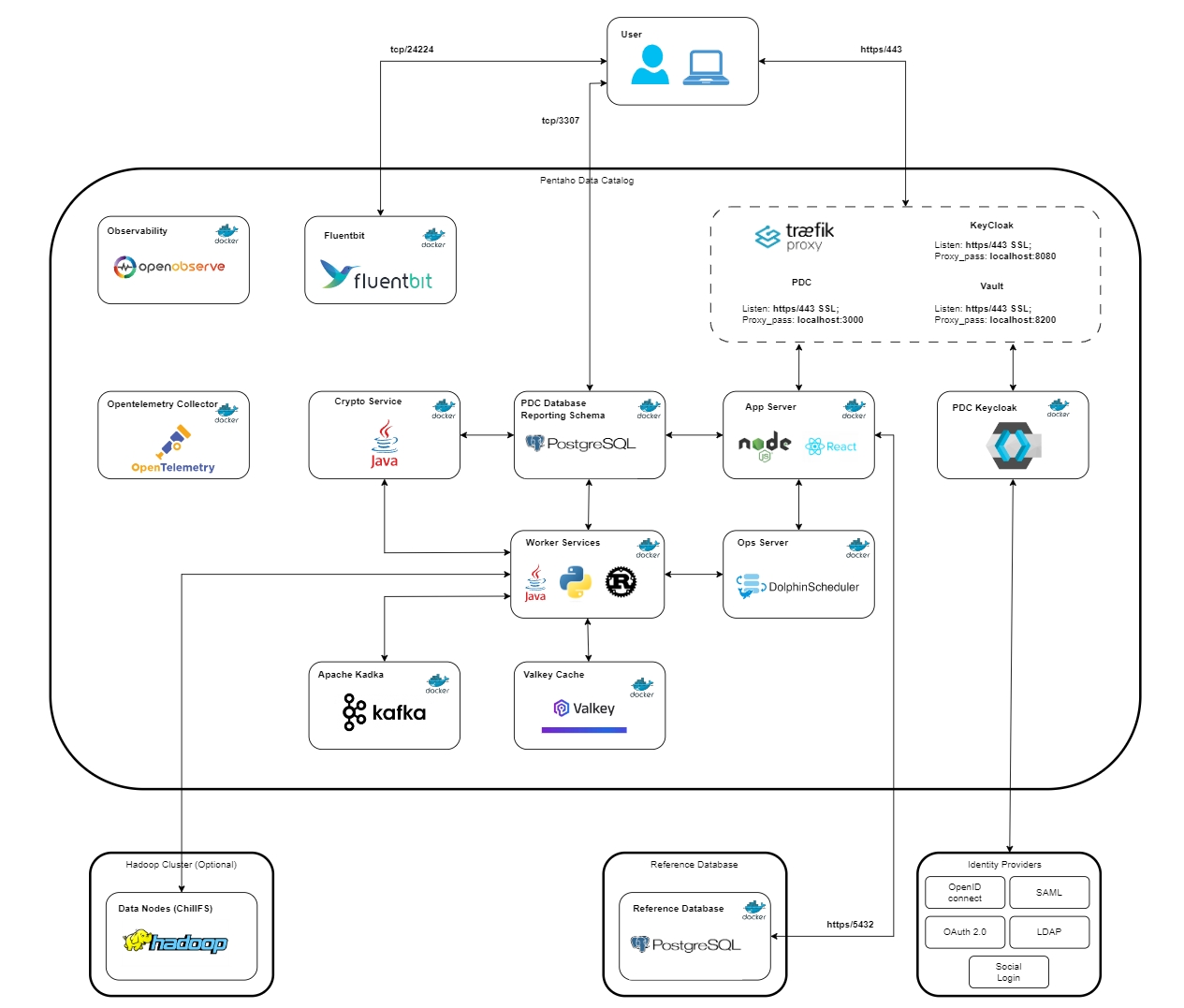
Portainer Main Features
If you haven't used Portainer before, then you're in for a treat:
• Easy Deployment: Simplify deployment across Docker, Kubernetes, and ACI with a user-friendly interface.
• Multi-Environment Management: Manage multiple environments, including on-premises, edge, and cloud-based instances, from a single pane of glass.
• Application Templating: Use pre-built templates or create custom ones for quick, consistent application deployment.
• Access Control and Permissions: Ensure users access only necessary resources with granular access controls.
• Observability and Monitoring: Gain insights with detailed monitoring, logging, and reporting.
• User and Team Management: Manage users, teams, and their access to resources, enhancing collaboration and security.
Log into Portainer
Log into Portainer either by clicking on the bookmark or
Enter credentials.
Username
admin
Password
Portainer123
Click on 'Live Connect' option.
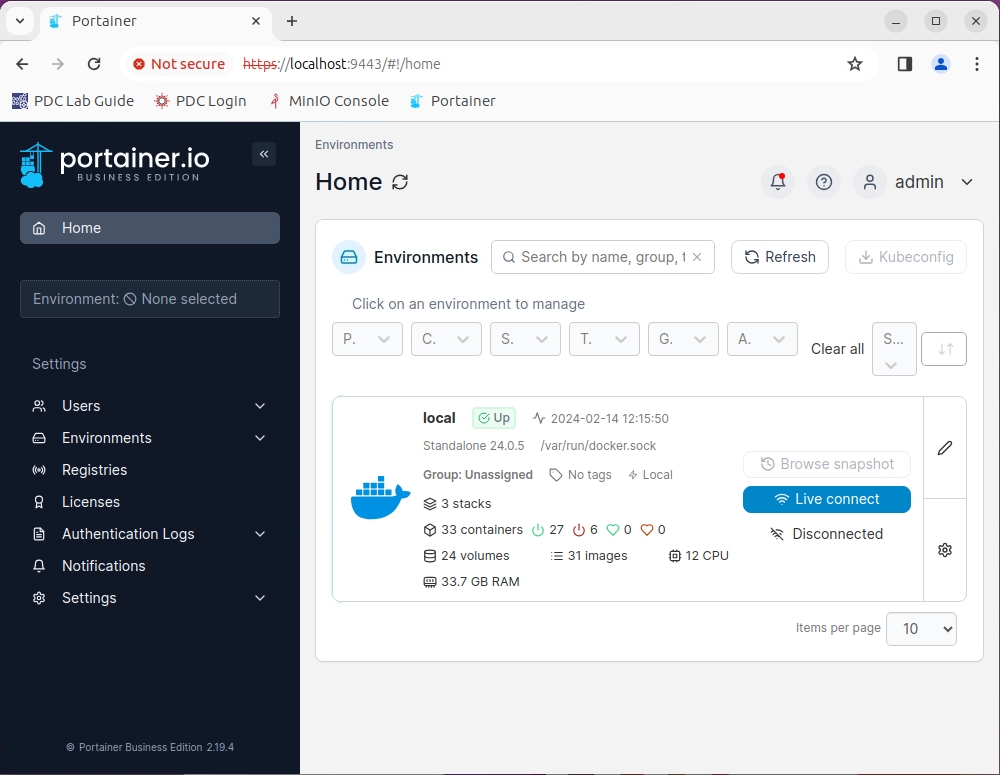
From the dashboard, you're able to access various components: Demo data sets, PDC / PDSO applications.
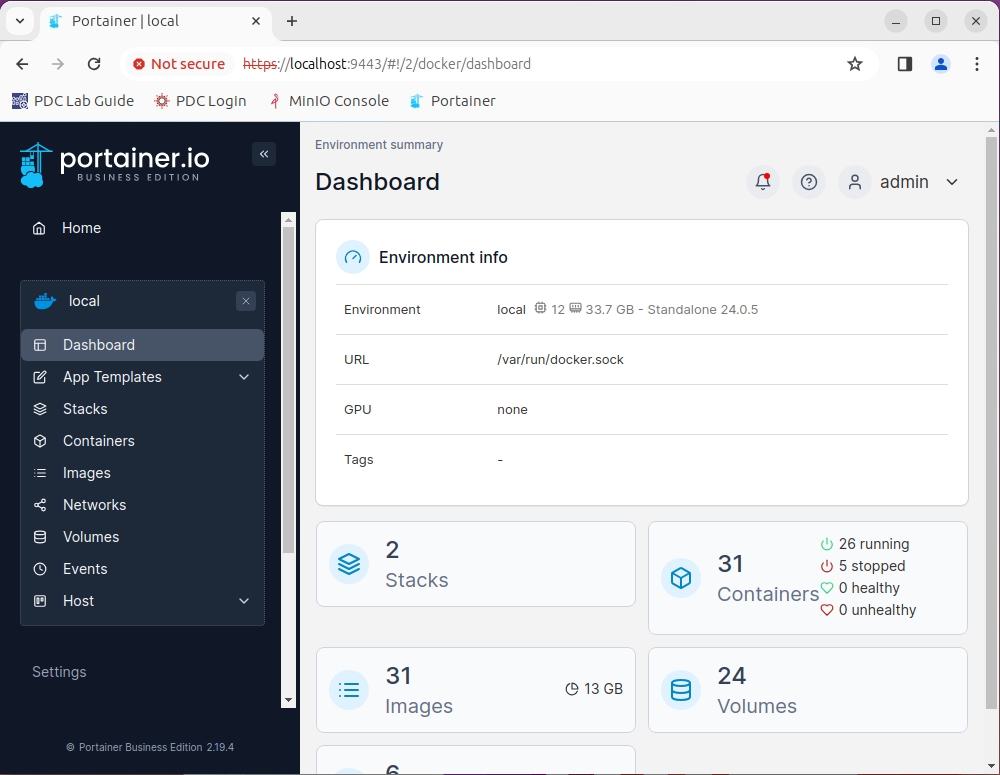
Containers
Docker containers are lightweight, stand-alone, executable packages that include everything needed to run a piece of software, including the code, runtime, system tools, libraries, and settings. They are isolated from each other and the host system, ensuring that the software runs consistently across any environment. Docker containers virtualize the operating system, allowing multiple workloads to run on a single OS instance, efficiently utilizing system resources and simplifying software delivery.
Overview of PDC/PDSO & Demosets containers ..
Click on 'Containers' option in the left hand menu.

Familiarise yourself with the various containers and their roles ..!

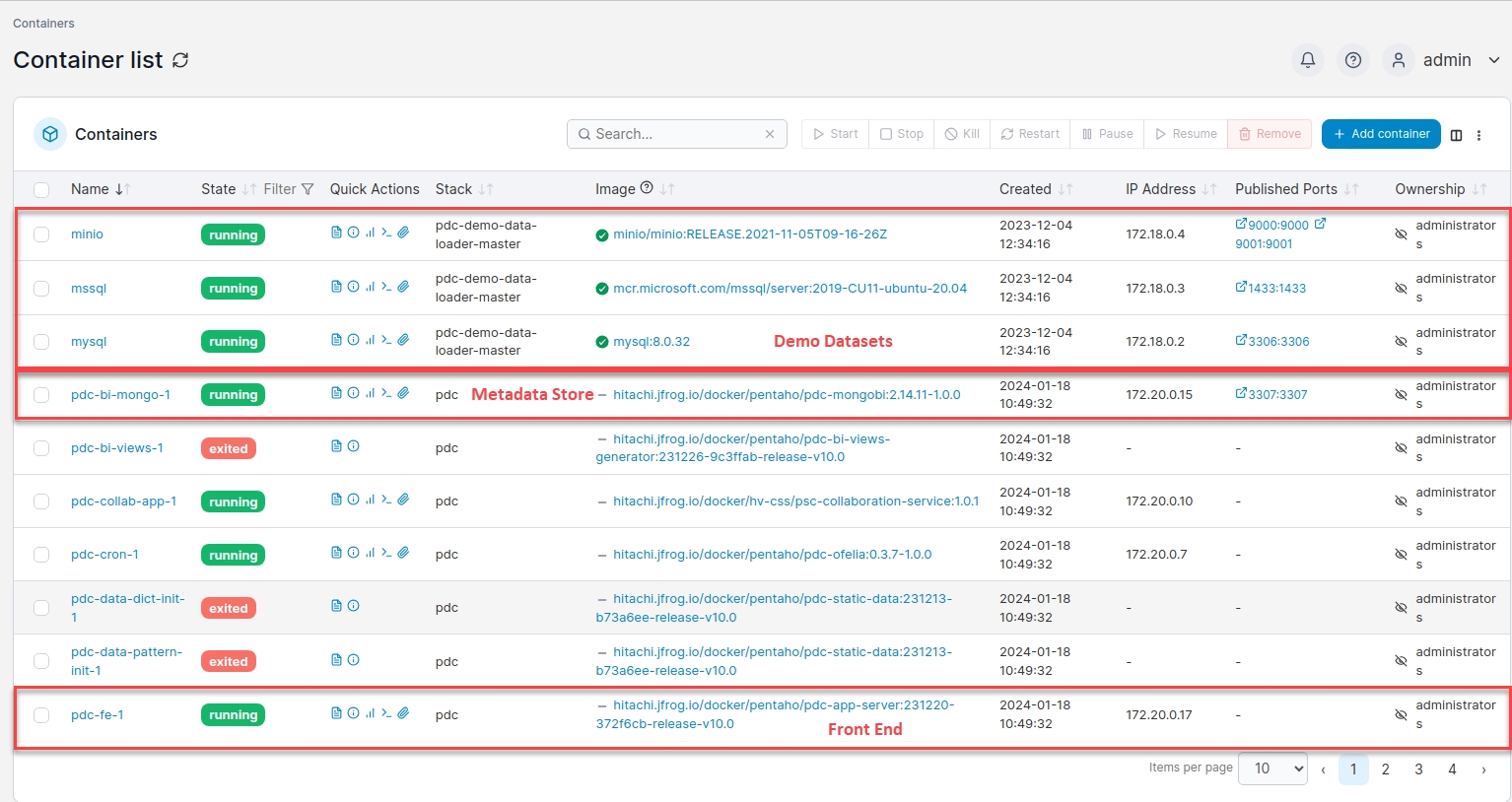
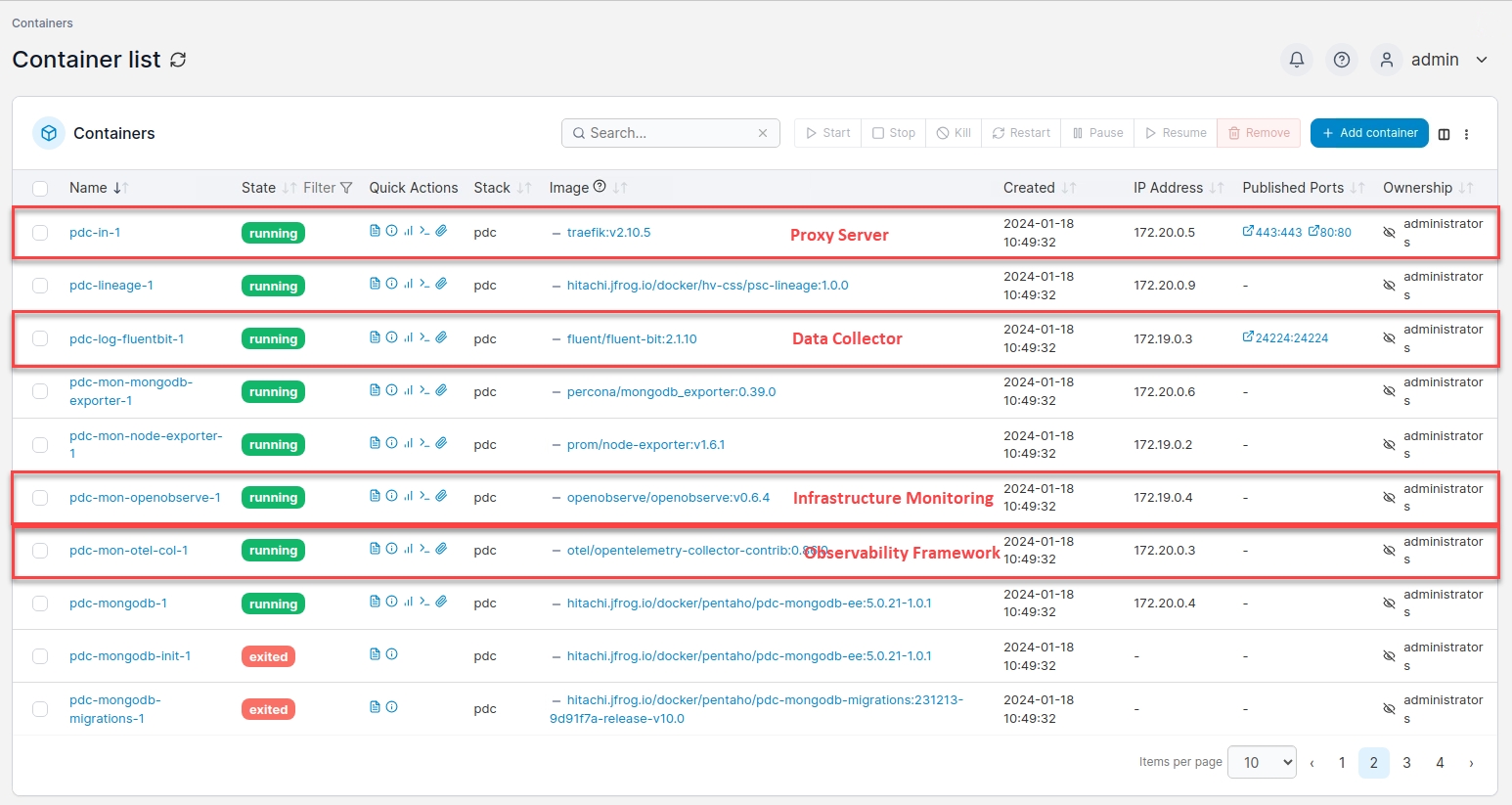
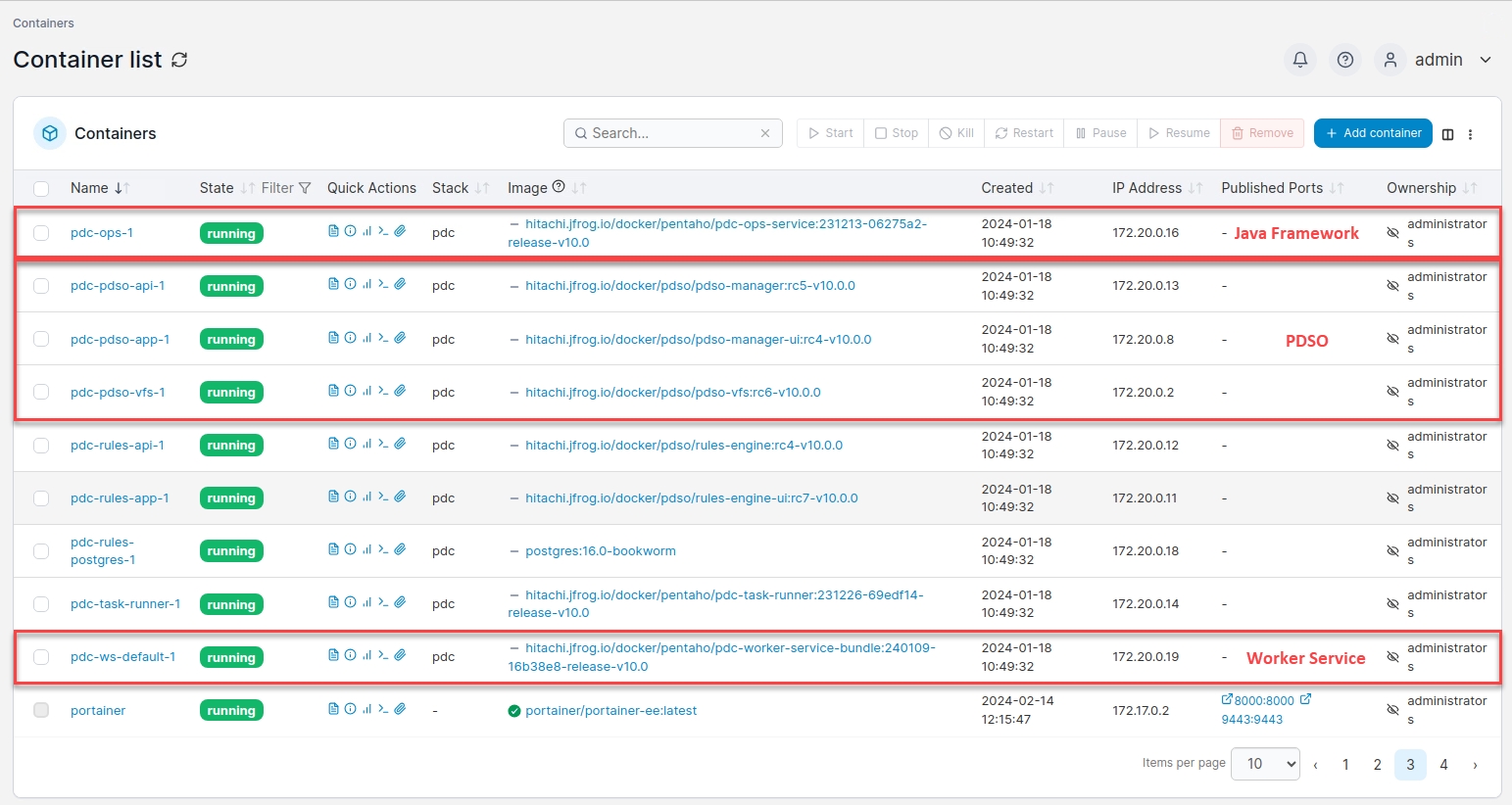
To retrieve a list of IDs, Image, Names & Status .. run the following command.
echo "ID,Image,Names,Status" && docker ps -a --format "{{.ID}},{{.Image}},{{.Names}},{{.Status}}" | awk '/Up/' | sed 's/-1,/,/g'Docker Volumes in Portainer
Docker volumes are an essential feature in managing persistent data generated by and used by Docker containers. In Portainer, handling Docker volumes is simplified, allowing users to create, manage, and attach volumes to containers effortlessly.
Overview of PDC/PDSO & Demo datasets volumes.
Click on 'Volumes' option in the left hand menu.
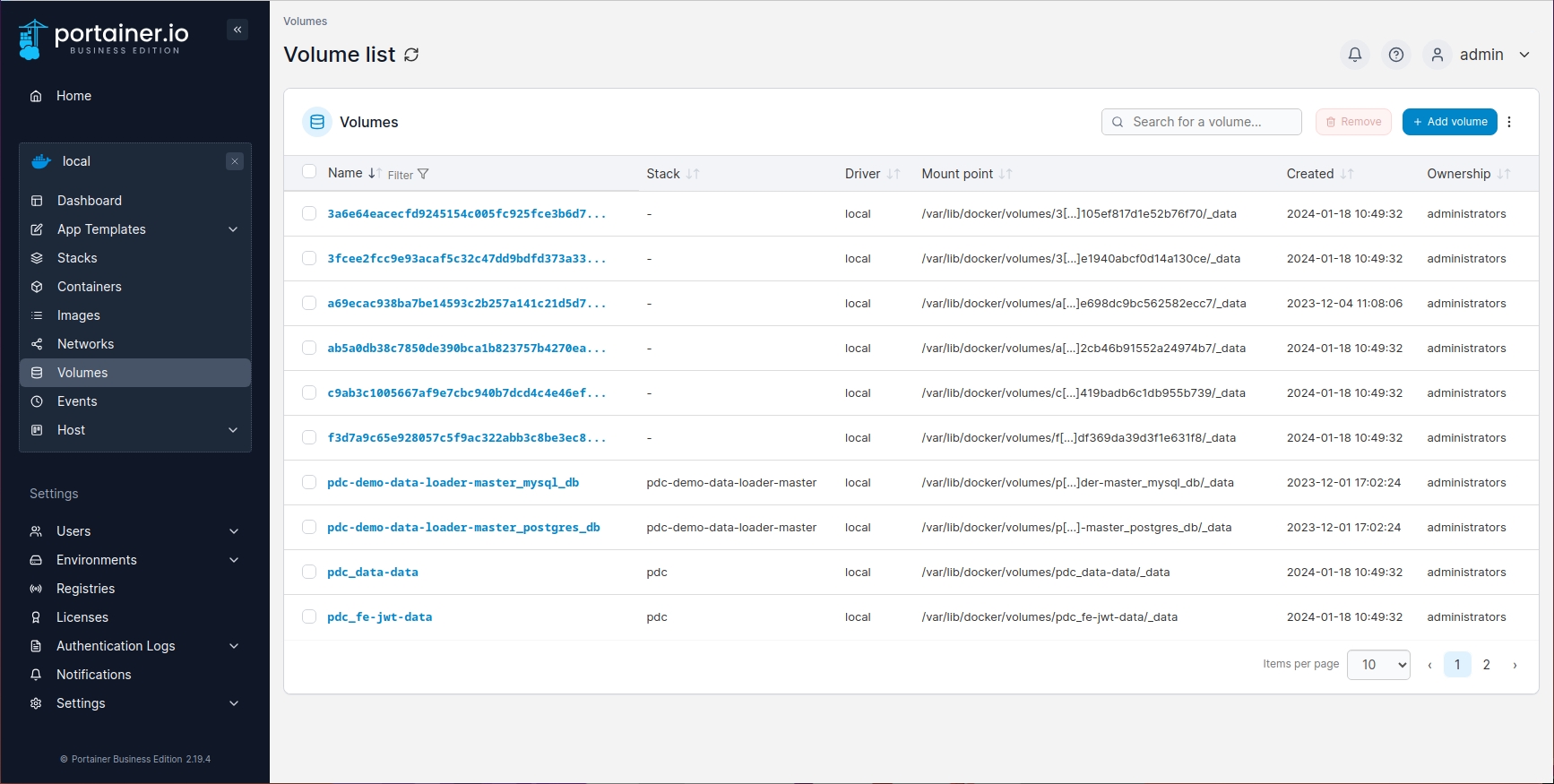
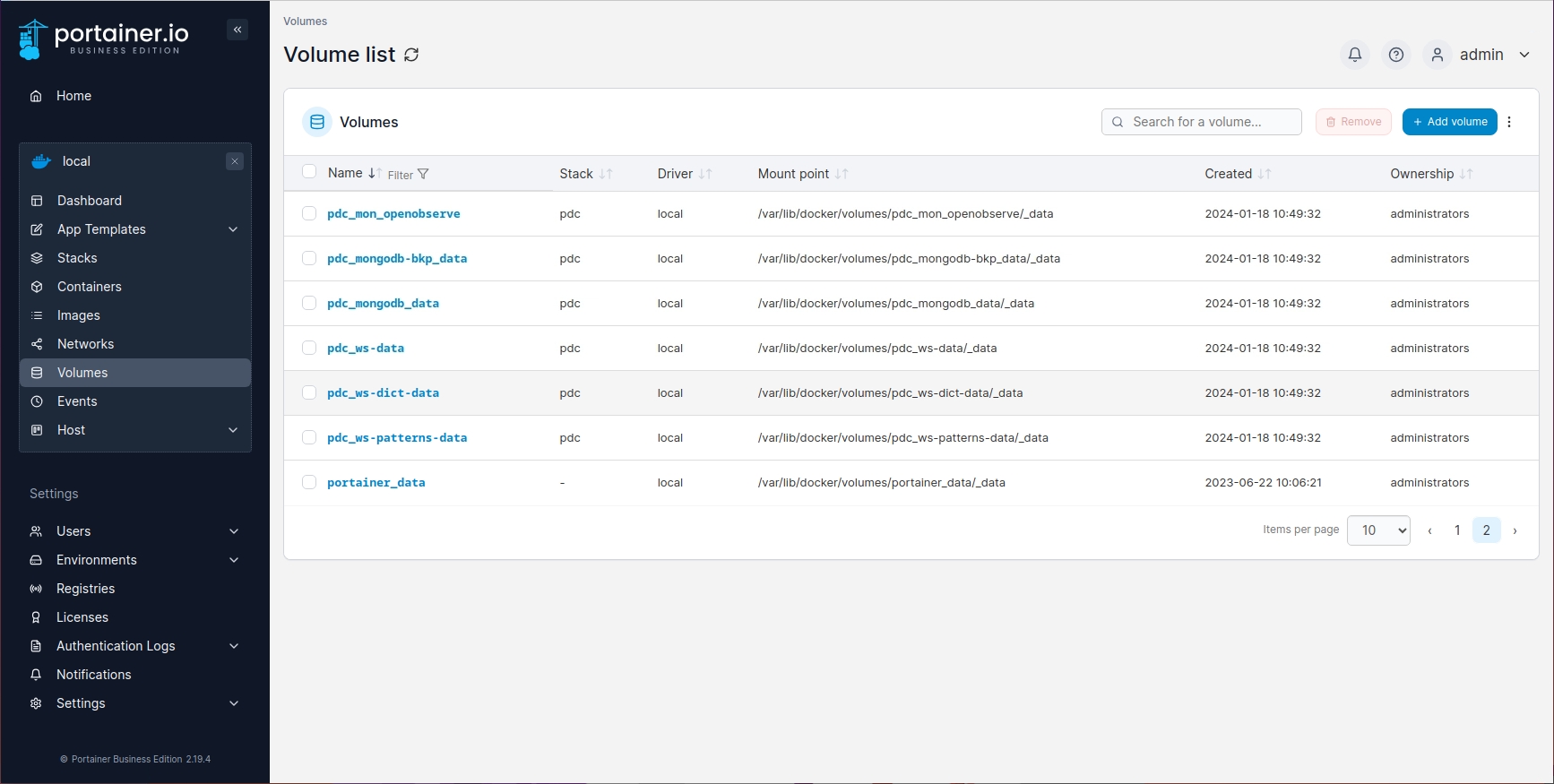
The following table list the main docker volumes located at: ~/var/lib/docker/volumes
pdc_data-data
Predefined Dictionaries & Patterns
pdc_fe-jwt-data
Public & private keys (.pem) for JWT token
pdc_mon_openobserve
Data Stores for Metrics, Traces & Logs
pdc_mongodb-bkp_data
MongoDB backup
pdc_mongodb_data
Indexes, Collections & Documents
pdc_ws-data
Glossaries, database drivers & 'fingerprints' of profiled data - bitset, bitcount, hll, sample, info.
pdc_ws-dict-data
pdc_ws-patterns-data
Useful Docker commands
x
docker volume inspect $(docker volume ls | grep 'pdc' | awk '{print $2}') -f '{{.Mountpoint}}'To view the data volume details.
docker volume inspect [volume name]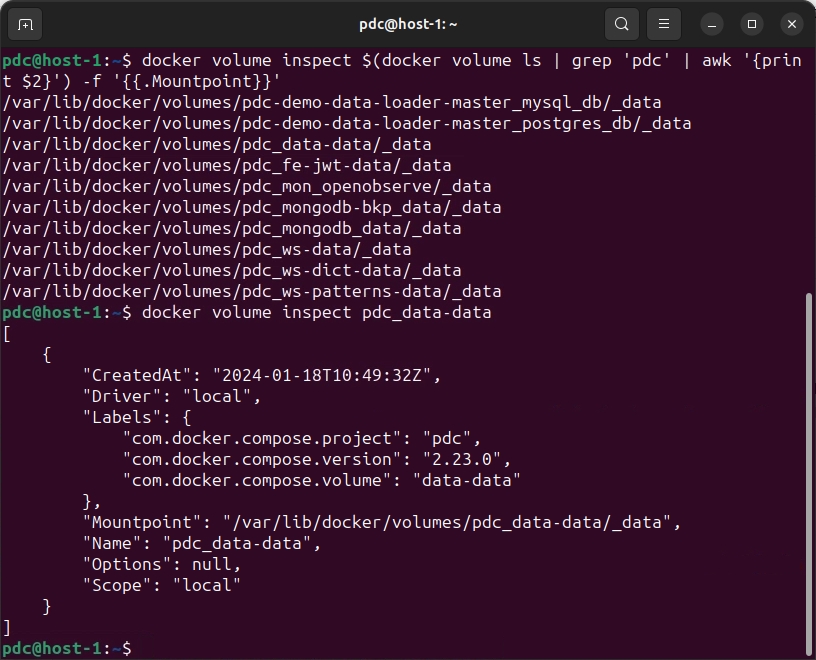
x
x
x
Was this helpful?
